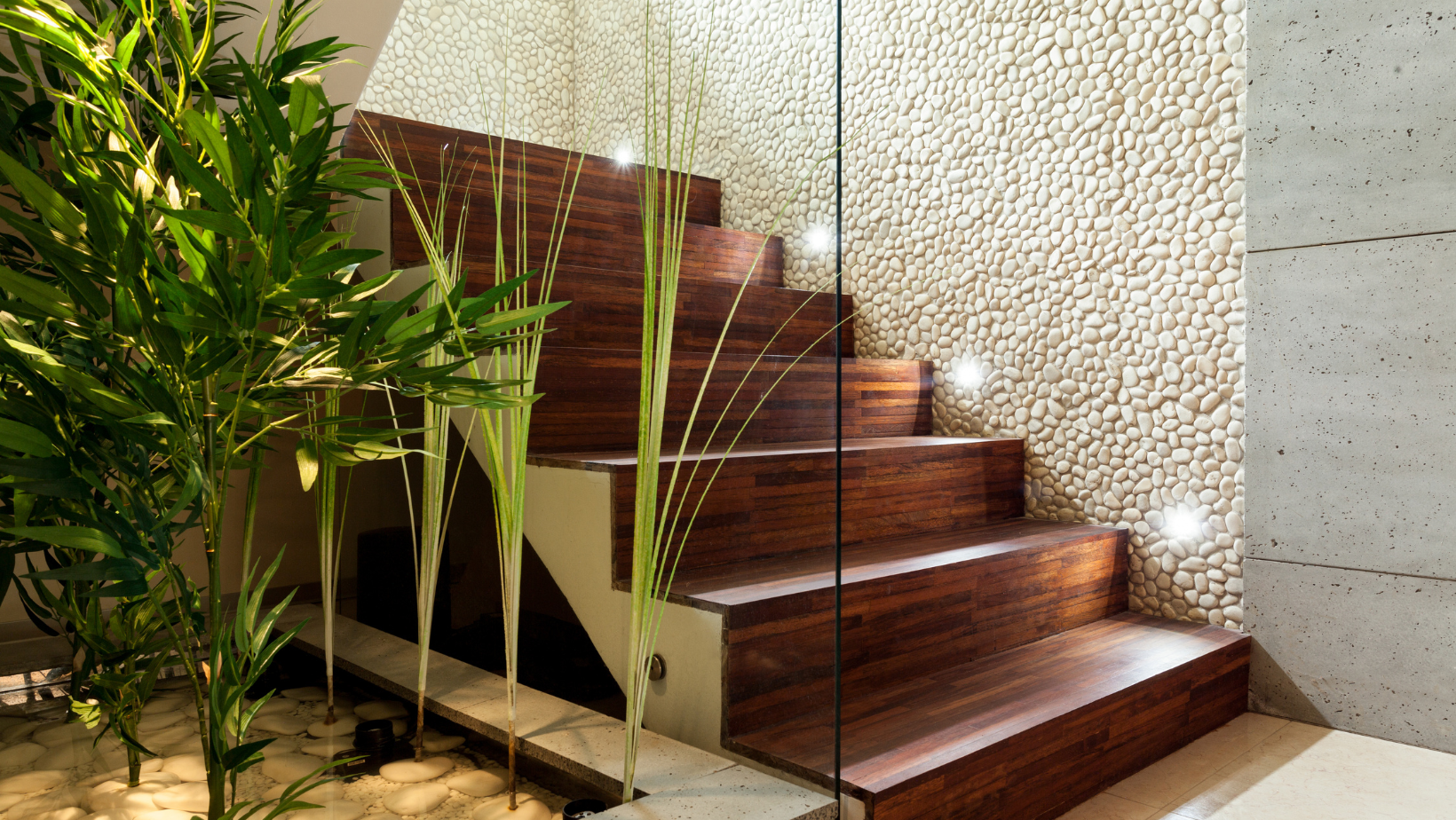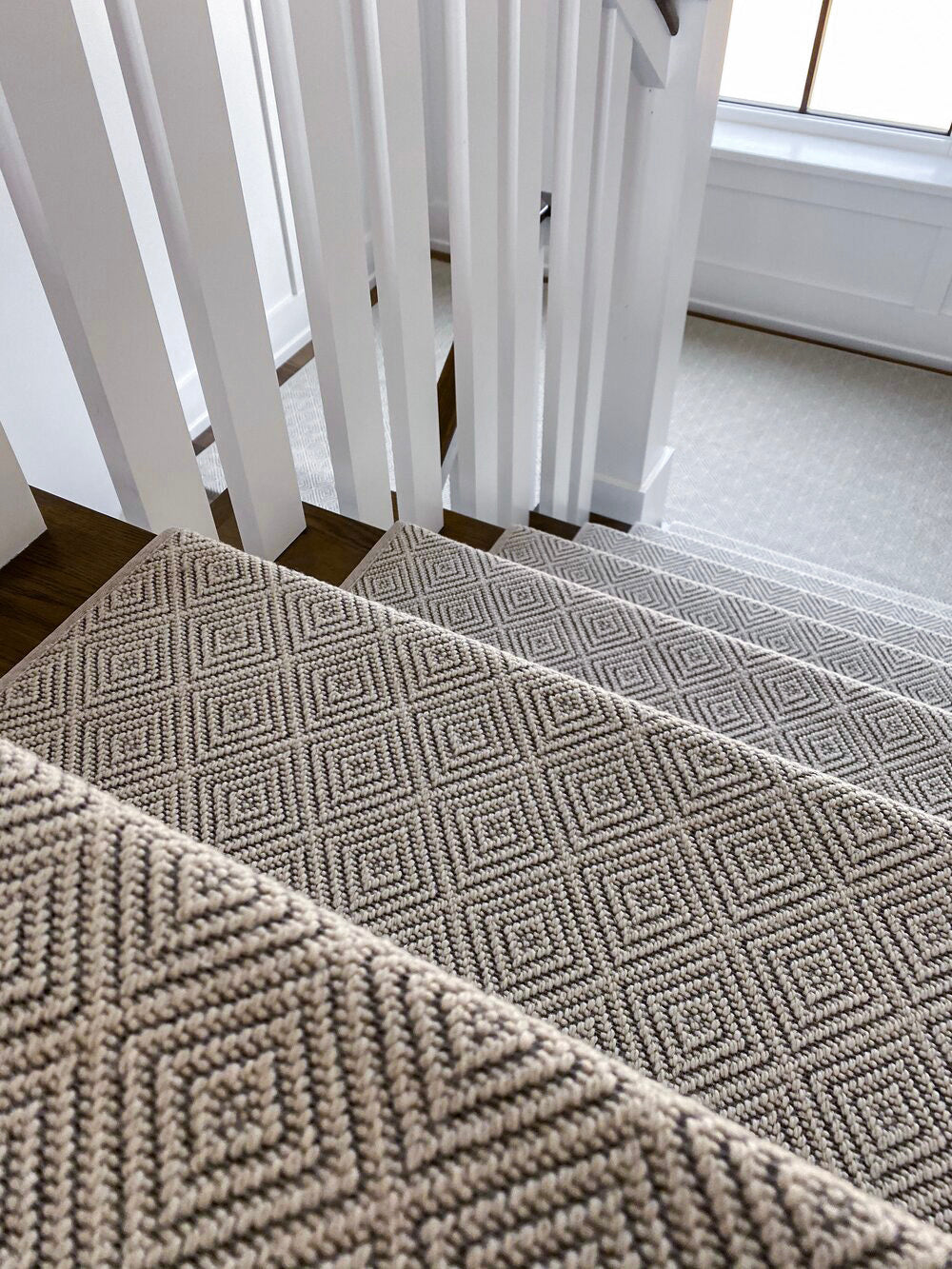Stair safety starts with the right tread depth, ensuring stability and comfort with every step.
So, how deep do stair treads need to be?
According to building codes, indoor stair treads should be at least 10 inches deep, while outdoor stair treads often require 11 inches or more for added stability in various conditions.
The depth of your treads also affects the installation of carpet stair treads, which must fit securely to prevent slipping.
If your stairs are too shallow, modifications like adding wood layers or extensions can improve safety and functionality.
Keep reading to learn how tread depth impacts stair design, safety regulations, and the best solutions for indoor and outdoor stairs.
Why Stair Tread Depth Matters for Safety and Comfort
The depth of stair treads directly affects how safely people can navigate stairs.
If the tread is too shallow, a person’s foot may not fully rest on the step, increasing the risk of tripping.
According to building codes, stair treads must be designed to provide a stable walking surface.
Insufficient tread depth forces people to adjust their footing, leading to instability.
This is particularly dangerous for young children, older adults, and individuals with mobility challenges.
Building codes also regulate stair riser height, ensuring that stairs are not too steep.
Most codes set the maximum riser height at 7.75 inches, which works in conjunction with tread depth to create a safe and comfortable staircase.
Impact of Tread Depth on Comfort and Stability
Beyond safety, stair tread depth affects how comfortable stairs feel to use.
Deeper treads allow for a natural stride, preventing the need for small, awkward steps.
-
Shallow treads force users to step cautiously, leading to discomfort and increased foot strain.
-
Deeper treads provide a more stable surface, especially beneficial in high-traffic areas.
-
For homes with pets and children, a deeper tread ensures better footing and reduces the risk of falls.
In addition to comfort, stair tread depth also affects how stair treads accommodate carpet installations.
The deeper the tread, the more secure the carpet needs to be to prevent movement or slipping.
Average Depth of Indoor and Outdoor Stair Treads
The typical depth of indoor stair treads is 10 inches, following IRC standards.
This size provides a balance between space efficiency and comfort, making it the standard in residential construction.
However, some homeowners prefer deeper stair treads to create a more comfortable walking surface.
In custom homes, tread depth may be extended to 11 or even 12 inches for a more luxurious feel.
How Deep Should Outdoor Stair Treads Be?
Outdoor stair treads typically need to be deeper than indoor stair treads due to environmental factors.
The recommended depth for outdoor treads is at least 11 inches, but many homeowners opt for 12 inches or more to provide extra stability.
Several factors influence outdoor stair tread depth:
-
Weather conditions – Rain, snow, and ice can make shallow treads slippery, increasing the risk of accidents.
-
Uneven ground – Outdoor stairs are often built on sloped or shifting terrain, requiring more depth for stability.
-
Material durability – Outdoor stairs are made from wood, concrete, or composite materials, which can affect the best depth for long-term safety.
For deck stairs, porch steps, or garden pathways, using deeper treads improves both safety and aesthetics, making stairs easier to use in all conditions.
How Do I Make My Stair Treads Deeper?
If your stair treads are too shallow, you may be wondering: how do I make my stair treads deeper?
The good news is that there are several ways to increase stair tread depth without completely rebuilding your staircase.
Methods for Making Stair Treads Deeper
-
Adding a New Layer of Wood or Composite
-
-
One of the simplest solutions is to attach a new layer of wood to the existing tread. This effectively increases the depth without altering the stair structure.
-
Composite materials can also be used for added durability, especially for outdoor stair treads.
-
-
Installing Stair Nosing Extensions
-
-
Stair nosing extensions add extra depth to each step while maintaining a seamless look.
-
This method works well for both indoor and outdoor staircases.
-
-
Rebuilding the Staircase
-
-
In some cases, especially when dealing with older homes, replacing the stairs entirely is the best way to ensure the correct depth.
-
This option is more expensive but guarantees that the new treads meet building code regulations.
-
Considerations for Outdoor Stair Treads
When adjusting outdoor stair tread depth, the materials used must be able to withstand rain, snow, and temperature fluctuations.
Popular materials include:
-
Pressure-treated wood – Resistant to moisture and rot, making it ideal for deck stairs.
-
Composite decking – Provides slip resistance and requires less maintenance than wood.
-
Concrete – Common for permanent outdoor stairs but may require sealing to prevent cracks.
How Tread Depth Affects Carpet Stair Tread Installation
Carpet stair treads add style, comfort, and safety to a staircase, but tread depth influences how they should be installed.
Challenges of Installing Carpet Stair Treads on Deeper Stairs
For deeper stair treads, carpet installation may require additional securing methods to prevent movement or bunching.
These may include:
-
Adhesive-backed carpet treads for secure placement on standard indoor stair treads.
-
Double-sided carpet tape or stair rods for outdoor stair treads where adhesives may weaken due to moisture.
-
Custom-sized carpet stair treads to ensure a snug fit on deeper or wider stairs.
Best Practices for Carpet Installation on Different Stair Tread Depths
-
For standard 10-inch indoor stair treads, most carpet stair treads fit securely using adhesive or tape.
-
For outdoor stairs with 11-inch or deeper treads, use water-resistant carpet stair treads and secure them with non-slip backing.
-
If modifying stair treads to increase depth, ensure the carpet size matches the new dimensions for a seamless finish.
Steps To Success
Stair tread depth plays a crucial role in ensuring safety, comfort, and functionality.
According to building codes, indoor stair treads should be at least 10 inches deep, while outdoor stair treads should be at least 11 inches for added stability.
For homeowners dealing with shallow stairs, solutions such as adding a new layer of wood or using stair nosing extensions can help increase depth.
Additionally, the choice of carpet stair treads should be based on tread depth to ensure a secure fit.
Whether you're designing a new staircase or modifying existing stairs, understanding tread depth is essential for creating a safer and more comfortable home.
Find the Perfect Carpet Stair Treads for Your Home
Enhance your stairs with high-quality, custom-fit carpet stair treads designed for safety and style.
-
Website: https://oakvalleydesigns.com/
-
Phone: 706.331.0315
-
Email: info@oakvalleydesigns.com
-
Address: 30 River Ct SW Bldg E Cartersville, Ga 30120



